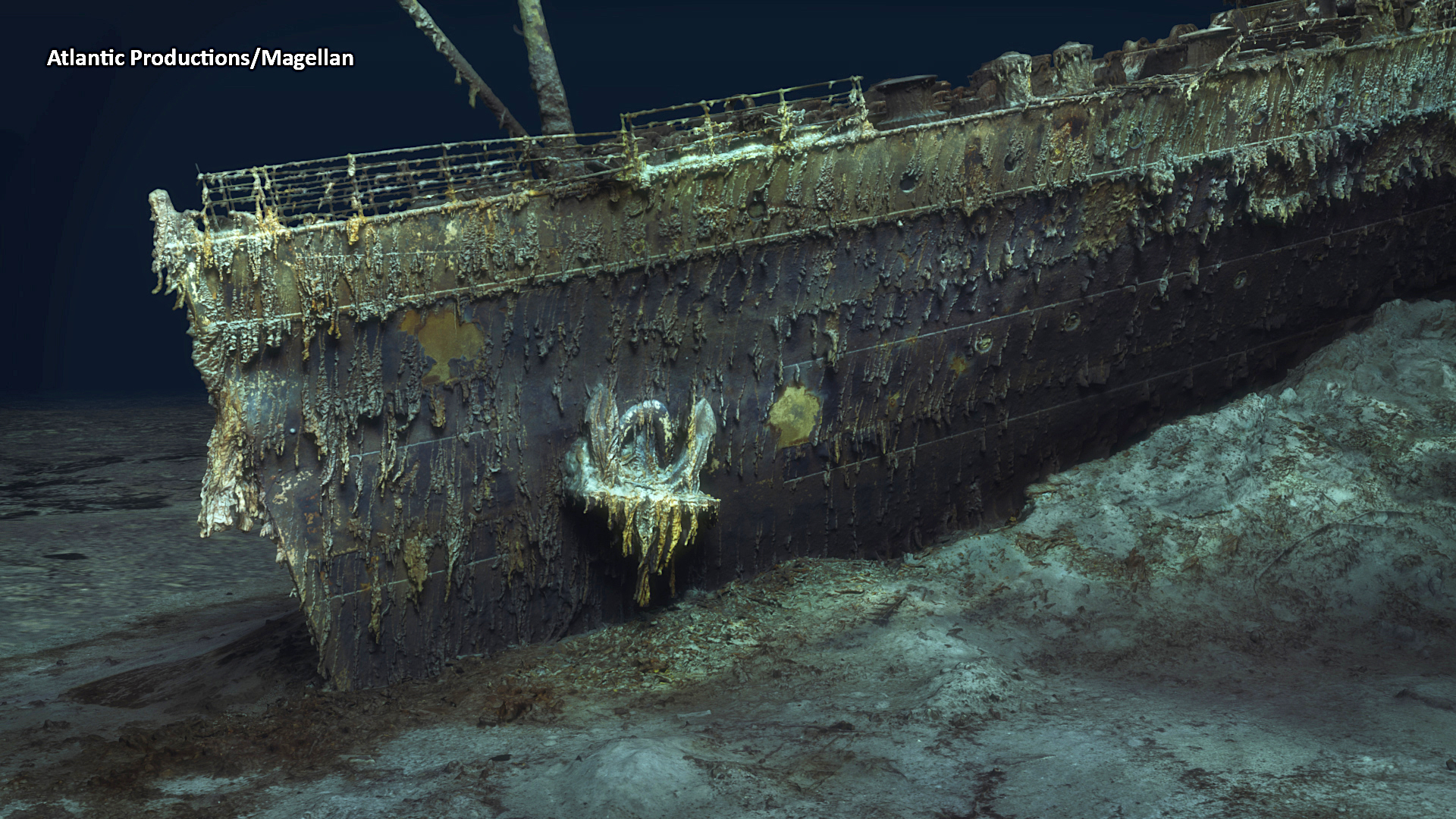This content originally appeared on Open Culture and was authored by Colin Marshall
Even the most ardent shipwreck enthusiasts among us must make peace with the fact that, in all probability, we’ll never get to see the Titanic for ourselves. But now, at least, we have a substitute in the form of the ship’s “digital twin,” based on more than 700,000 images collected underwater over 200 hours.”It provides a unique 3D view of the entire ship, enabling it to be seen as if the water has been drained away,” report BBC News’ Rebecca Morelle and Alison Francis. “The scan was carried out in summer 2022 by Magellan Ltd, a deep-sea mapping company, and Atlantic Productions, who are making a documentary about the project.”
You can catch a glimpse of how the scan looks in the clip from the Times at the top of the post, but it only hints at its true level of detail. “The joint mission by Magellan and Atlantic Productions deployed two submersibles nicknamed Romeo and Juliet to map every millimeter of the wreck, including the debris field spanning some three miles,” writes Ars Techica’s Jennifer Ouellette.
“The result was a whopping 16 terabytes of data, along with over 715,000 still images and 4K video footage. That raw data was then processed to create the 3D digital twin. The resolution is so good, one can make out part of the serial number on one of the propellers.”

“The bow, now covered in stalactites of rust, is still instantly recognizable even 100 years after the ship was lost,” write Morelle and Francis. “Sitting on top is the boat deck, where a gaping hole provides a glimpse into a void where the grand staircase once stood.” As one might expect, the Titanic has come through twelve decades at the bottom of the North Atlantic ocean somewhat worse for wear, and getting worse all the time. “Microbes are eating away at it and parts are disintegrating. Historians are well aware that time is running out to fully understand the maritime disaster.” Indeed, there will come a day when the remains of the Titanic will have vanished completely. But even then, its digital twin — or, perhaps, digital ghost — will have more to teach us.
Related content:
See the First 8K Footage of the Titanic, the Highest-Quality Video of the Shipwreck Yet
Watch the Titanic Sink in Real Time in a New 2-Hour, 40 Minute Animation
Watch 80 Minutes of Never-Released Footage Showing the Wreckage of the Titanic (1986)
How the Titanic Sank: James Cameron’s New CGI Animation
The Titanic: Rare Footage of the Ship Before Disaster Strikes (1911-1912)
Titanic Survivor Interviews: What It Was Like to Flee the Sinking Luxury Liner
Based in Seoul, Colin Marshall writes and broadcasts on cities, language, and culture. His projects include the Substack newsletter Books on Cities, the book The Stateless City: a Walk through 21st-Century Los Angeles and the video series The City in Cinema. Follow him on Twitter at @colinmarshall or on Facebook.
This content originally appeared on Open Culture and was authored by Colin Marshall
Colin Marshall | Sciencx (2023-05-18T09:00:56+00:00) The First Full 3D Scan of the Titanic, Made of More Than 700,000 Images Capturing the Wreck’s Every Detail. Retrieved from https://www.scien.cx/2023/05/18/the-first-full-3d-scan-of-the-titanic-made-of-more-than-700000-images-capturing-the-wrecks-every-detail/
Please log in to upload a file.
There are no updates yet.
Click the Upload button above to add an update.

